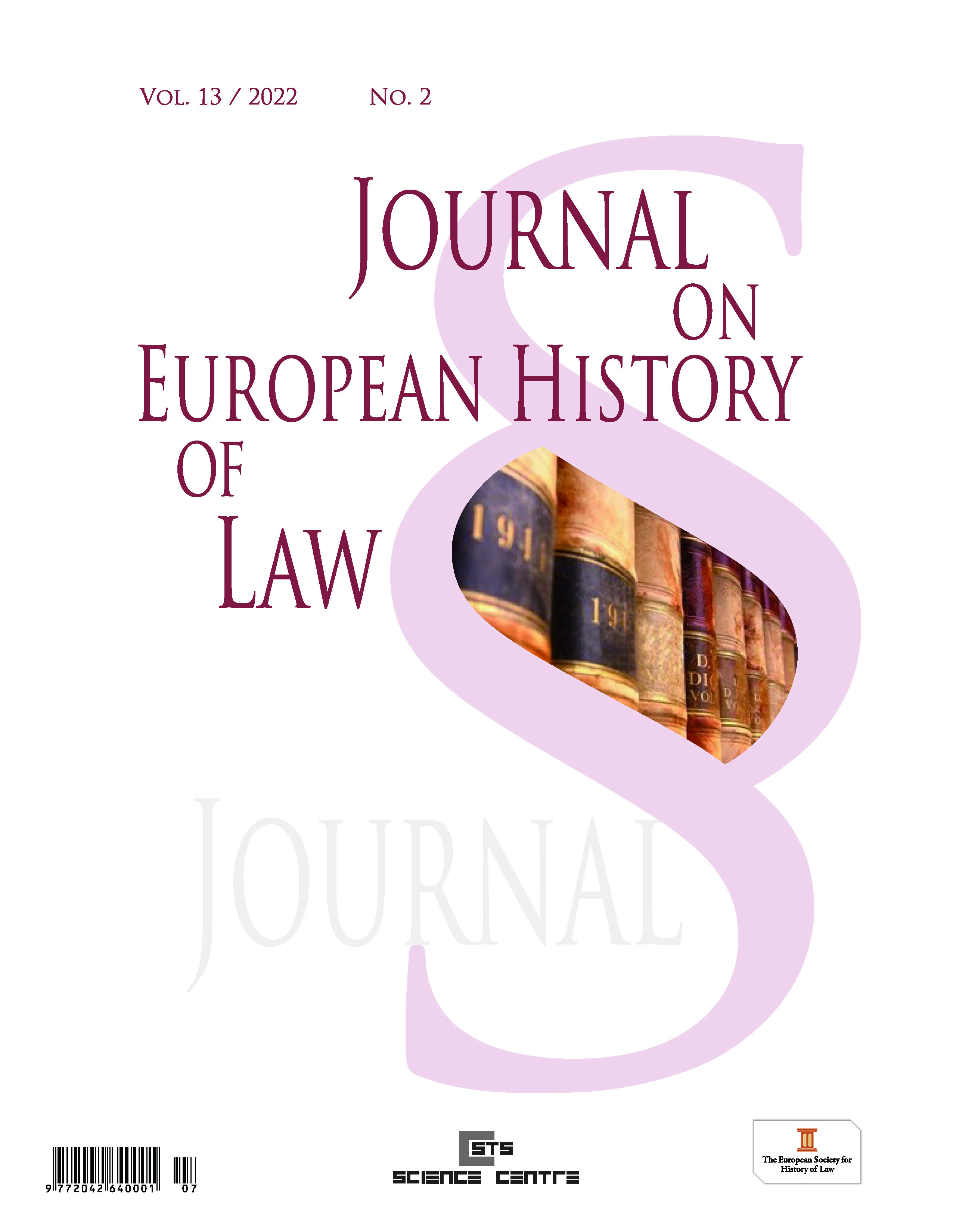‘Pandemic Criminal Law’ in Continental European Legal History
‘Pandemic Criminal Law’ in Continental European Legal History
Author(s): Vid ŽepičSubject(s): History, Law, Constitution, Jurisprudence
Published by: Evropská společnost pro právní dějiny, z.s.
Keywords: Plague law; criminal law; Pestordnungen; pandemic; health magistrates; plague spreaders; Holy Roman Empire; Dubrovnik; Italy; quarantine; sanitary cordon; Roman law.
Summary/Abstract: The article outlines the development of official criminal policy against the spread of infectious diseases, especially the plague, in continental Europe from antiquity to the end of the 18th century. The crimes and their punishments are presented on the basis of city statutes, early modern penal codes and contemporary legal doctrine. Surprisingly, even though European countries faced devastating plague pandemics, no significant criminal-law related state intervention in pandemics took place until the 16th century, except in a number of coastal cities of the Mediterranean and northern Italian cities. The prosecution of sanitary crimes was the business of sanitary magistrates, who were in charge of wide criminal jurisdiction. The ‘pandemic criminal law’ was characterised by harsh penalties resembling martial law, criminalisation of both commission and omission, intentional and negligent offences, and the departure from the principle of legality when it was already an established legal principle.
Journal: Journal on European History of Law
- Issue Year: 13/2022
- Issue No: 2
- Page Range: 50-63
- Page Count: 14
- Language: English

